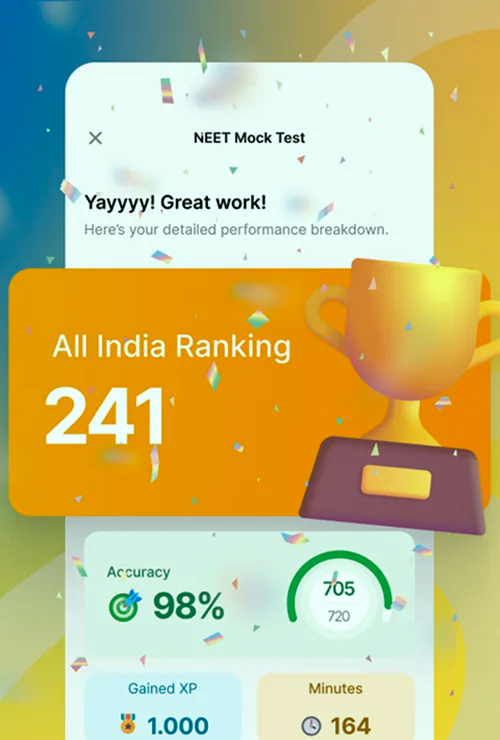General Information
Dr. B.R. Ambedkar University, which many still know by its original name, Agra University, is a cornerstone of higher education in UP. It's a public State University, tracing its origins way back to 1927. That makes it one of the oldest in the state! In 1996, it was renamed to honor the architect of the Indian Constitution, Dr. B.R. Ambedkar.
Its role is massive. DBRAU functions as both a teaching university, running numerous postgraduate departments and specialized institutes directly on its campuses, and a huge affiliating university. It sets the academic standards and awards degrees for hundreds of colleges spread across the Agra division and nearby districts. Think of it as the academic mothership for a vast region.
It's got the necessary credentials:
Recognized by the UGC (University Grants Commission) and qualifies for central assistance (under Section 12B).
Holds a 'B++' Grade from NAAC (National Assessment and Accreditation Council).
Its professional courses have the nod from relevant bodies like AICTE (for Engineering/Management), BCI (Law), PCI (Pharmacy), and NCTE (Education).
Campus Facilities
The Campus: Spread Across Agra
DBRAU isn't confined to one spot; its presence is felt across multiple locations in Agra.
Paliwal Park Campus: This is the historic soul of the university, featuring charming, older architecture. It still houses key administrative functions and some established departments.
Khandari Campus: This is the larger, more modern hub. You'll find many of the university's residential institutes (like the Institute of Engineering & Technology - IET), numerous academic departments, the main Central Library, and important administrative offices here. It's buzzing with student activity.
Other Centers: Specific institutes or departments might operate from other locations within the city.
What's On Offer (Facilities):
Libraries: A large Central Library at Khandari, plus departmental libraries.
Labs: Functional labs supporting Science, Engineering, Pharmacy, and other practical courses. Modernity might vary.
Classrooms: A mix of traditional lecture halls and seminar rooms.
Sports: Decent facilities spread across campuses, including grounds and potentially indoor options.
Essentials: Canteens, a basic Health Centre, bank/post office facilities, and common areas.
Paliwal Park Campus: This is the historic soul of the university, featuring charming, older architecture. It still houses key administrative functions and some established departments.
Khandari Campus: This is the larger, more modern hub. You'll find many of the university's residential institutes (like the Institute of Engineering & Technology - IET), numerous academic departments, the main Central Library, and important administrative offices here. It's buzzing with student activity.
Other Centers: Specific institutes or departments might operate from other locations within the city.
What's On Offer (Facilities):
Libraries: A large Central Library at Khandari, plus departmental libraries.
Labs: Functional labs supporting Science, Engineering, Pharmacy, and other practical courses. Modernity might vary.
Classrooms: A mix of traditional lecture halls and seminar rooms.
Sports: Decent facilities spread across campuses, including grounds and potentially indoor options.
Essentials: Canteens, a basic Health Centre, bank/post office facilities, and common areas.
Hospital & Medical Facilities
Leading tertiary care hospital attached to the institution
Healthcare Focus: Pharmacy & Allied, No MBBS Here
It's important to be clear: Dr. B.R. Ambedkar University does not run its own Medical College offering the MBBS degree, nor does it have an associated large-scale teaching hospital for that purpose. While it excels in Pharmacy (B.Pharm/M.Pharm) and offers various paramedical or life science courses, it's not a medical university. If you're looking for MBBS in Agra, colleges like SN Medical College fall under the state's medical university (ABVMU, Lucknow) affiliation. DBRAU does have a Health Centre for basic student/staff needs.
Academic Array: From Arts to Engineering
DBRAU, through its campus institutes/departments and vast affiliated college network, offers a huge variety of programs.
Key Campus Institutes:
Institute of Engineering & Technology (IET): Known for its B.Tech programs.
Institute of Social Sciences
K.M. Institute of Hindi Studies and Linguistics
Institute of Home Science
Departments for almost every major Arts, Science, Commerce, Law, and Education discipline.
What Students Study (Popular Choices):
The Foundation: BA, B.Sc, B.Com (These have massive enrollment, mostly via affiliated colleges).
Professional Edge: B.Tech (CSE, ECE, ME, etc. at IET), B.Pharm, MBA, BBA, LLB, BA LLB, B.Ed, M.Ed, B.P.Ed, MCA.
Postgraduate Studies: MA, M.Sc, M.Com (covering a wide range of subjects), LLM, M.Pharm.
Deep Dive (Research): Ph.D. programs across many fields.
DBRAU, through its campus institutes/departments and vast affiliated college network, offers a huge variety of programs.
Key Campus Institutes:
Institute of Engineering & Technology (IET): Known for its B.Tech programs.
Institute of Social Sciences
K.M. Institute of Hindi Studies and Linguistics
Institute of Home Science
Departments for almost every major Arts, Science, Commerce, Law, and Education discipline.
What Students Study (Popular Choices):
The Foundation: BA, B.Sc, B.Com (These have massive enrollment, mostly via affiliated colleges).
Professional Edge: B.Tech (CSE, ECE, ME, etc. at IET), B.Pharm, MBA, BBA, LLB, BA LLB, B.Ed, M.Ed, B.P.Ed, MCA.
Postgraduate Studies: MA, M.Sc, M.Com (covering a wide range of subjects), LLM, M.Pharm.
Deep Dive (Research): Ph.D. programs across many fields.
Fee Structure
State University Affordability
Fee Structure: State University Value Proposition
City Details
Hostel & Mess
Campus Living: Hostel Life at DBRAU
DBRAU provides residential options, mainly for students in its on-campus programs.
Where to Stay: Hostels are primarily located on or near the Khandari Campus. Separate facilities exist for boys and girls. Getting a room often depends on your course, academic merit, and how far you live from Agra.
What to Expect: Basic amenities are the norm – furnished shared rooms, common areas, mess facilities, security, and warden supervision.
Dining: Standard mess facilities provide regular meals. Expect typical state university mess fare.
The Cost: A major plus of a state university is affordability. The combined annual cost for the hostel room and basic mess food is usually very economical, likely falling within the ₹20,000 - ₹40,000 range (get the exact figure from the hostel office).
Miscellaneous
Admissions & After: Getting In, Getting Placed
How Admissions Work:
B.Tech (IET): Primarily via JEE (Main) rank through UPTAC counselling. Check for university-level counselling for leftover seats.
MBA/MCA: Usually through state-level tests (like UPCET/ CUET-PG) followed by university counselling.
Law (LLB/BA LLB): Often requires the university's own entrance test. Check CUET acceptance.
B.Pharm: Via state-level entrance (UPCET/CUET-UG) or university test/merit.
B.Ed: Through the state-wide UP B.Ed. JEE.
Most other UG/PG (On Campus): Increasingly relies on CUET-UG and CUET-PG scores.
Affiliated Colleges (UG/PG): Largely based on merit in Class 12/Graduation. Students typically register centrally on the DBRAU web portal, and colleges then prepare merit lists based on university rules. Crucial: The official admission notification from DBRAU for the specific year is your ultimate guide.
Career Launchpad (Placements): DBRAU has a central placement cell, and institutes like IET have dedicated placement teams.
Who Gets Placed: Placement activity is strongest for professional courses – Engineering, Management, Pharmacy.
Who Hires: Expect a mix of IT service companies, local industries in the Agra region, some banks, educational institutions, and pharmaceutical companies.
The Paycheck: Placement rates and salary packages vary. While some secure decent offers, the average package often falls between ₹3 LPA and ₹5 LPA. Many graduates, especially from traditional streams or affiliated colleges, prioritize government job exams, further studies, or off-campus job searches.
How Admissions Work:
B.Tech (IET): Primarily via JEE (Main) rank through UPTAC counselling. Check for university-level counselling for leftover seats.
MBA/MCA: Usually through state-level tests (like UPCET/ CUET-PG) followed by university counselling.
Law (LLB/BA LLB): Often requires the university's own entrance test. Check CUET acceptance.
B.Pharm: Via state-level entrance (UPCET/CUET-UG) or university test/merit.
B.Ed: Through the state-wide UP B.Ed. JEE.
Most other UG/PG (On Campus): Increasingly relies on CUET-UG and CUET-PG scores.
Affiliated Colleges (UG/PG): Largely based on merit in Class 12/Graduation. Students typically register centrally on the DBRAU web portal, and colleges then prepare merit lists based on university rules. Crucial: The official admission notification from DBRAU for the specific year is your ultimate guide.
Career Launchpad (Placements): DBRAU has a central placement cell, and institutes like IET have dedicated placement teams.
Who Gets Placed: Placement activity is strongest for professional courses – Engineering, Management, Pharmacy.
Who Hires: Expect a mix of IT service companies, local industries in the Agra region, some banks, educational institutions, and pharmaceutical companies.
The Paycheck: Placement rates and salary packages vary. While some secure decent offers, the average package often falls between ₹3 LPA and ₹5 LPA. Many graduates, especially from traditional streams or affiliated colleges, prioritize government job exams, further studies, or off-campus job searches.
Note for NRI Aspirants
Here's the situation regarding Non-Resident Indian (NRI) admissions:
Standard Policy: As a traditional State University, DBRAU generally does not maintain a specific, reserved NRI quota for its regular government-aided programs. Admissions follow UP domicile rules, All-India eligibility (where applicable, e.g., JEE Main for B.Tech), and standard Indian reservation policies.
Self-Financed Exception? There's a slim chance that specific self-financed courses offered directly by the university might have provisions for admitting NRI/Foreign Nationals, potentially on extra (supernumerary) seats and usually at considerably higher fees. This isn't a common or widely advertised route.
Best Advice: Don't assume. Since there's no standard NRI channel, direct contact is essential. Reach out to the DBRAU main admission office or the specific institute/department you're interested in. Ask clearly if any policy exists for NRI admissions for that course, and if so, what the exact requirements (eligibility, documents, process) and fee structure are.
Collage Images Gallery
Facilities & Campus Life
Well-equipped Library
Experienced Faculty
Computer Lab
Sports Activities
Heritage Campus
Frequently Asked Questions
Why Consult With Us?
- 15+ years of experience in medical education counseling
- 5000+ students successfully guided
- 50+ partner universities worldwide
- Free initial consultation with no obligation














